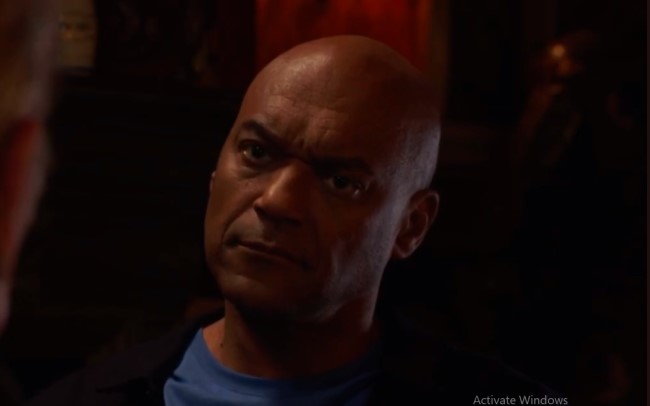Henry Kofi Asare: A Deep Dive into the Character’s Impact on EastEnders

Henry Kofi Asare, a pivotal figure in the British soap opera EastEnders, has left an indelible mark on the show’s narrative and its audience. As a character introduced to highlight themes of identity, racism, and familial bonds, Henry’s story has become a cornerstone of the show’s dramatic arcs. While his physical presence on the show was brief, the legacy of his character continues to shape the lives of others within the EastEnders universe.
Who Is Henry Kofi Asare?
Henry Kofi Asare is portrayed as a Ghanaian man with strong values and deep love for his family. Introduced in a backstory involving his wife, Margaret Asare, and his children—George Knight, Kojo Asare, and Kobina Asare—Henry’s character served as a poignant reminder of the struggles faced by immigrants in the UK during the 1980s.
Henry’s journey in EastEnders began with his decision to send his son George to live temporarily with Eddie and Gloria Knight. This decision was driven by his desire to ensure George had a stable upbringing. However, tragedy struck when Henry returned to reclaim his son, only to be met with violence and ultimately murdered. This act, fueled by racism, led to his body being hidden for decades, setting off a series of events that would deeply impact his family’s story.
The Importance of Henry Kofi Asare in EastEnders’ Plot
Henry Kofi Asare’s storyline is not just a subplot but a critical element of the EastEnders narrative. His murder and the subsequent discovery of his remains in the Grand Surrey Canal decades later serve as a catalyst for uncovering truths about George Knight’s past. This storyline sheds light on the racial tensions and social challenges of the time, making it a powerful commentary on historical and ongoing issues.
Impact on George Knight
George Knight, one of Henry’s sons, bears the most significant burden of his father’s tragic fate. Raised by Eddie and Gloria Knight, George grew up unaware of the full extent of his father’s story. The revelation of Henry’s murder not only disrupted George’s perception of his past but also brought to light the systemic injustices faced by his father.
In a heartbreaking revelation, it was disclosed that Eddie Knight, under Gloria’s instructions, was responsible for Henry’s death. Gloria had asked Eddie to “get rid of” Henry, which resulted in Henry being killed, stuffed into a suitcase, and discarded in the Grand Surrey Canal. The incident was a racially motivated act of violence, leaving George unaware of the truth for decades.
George’s Witness to the Crime
A key twist in the storyline revealed that George, at the age of 15, had unknowingly witnessed the crime. George saw Eddie and his associates scrapping with Henry before his murder. The traumatic memory resurfaced during a confrontation at the Queen Vic, where George pressed Eddie for answers. George’s emotional turmoil was evident as he recalled running home in tears and hiding under a duvet after seeing the horrifying act.
Uncovering Historical Injustices
The storyline surrounding Henry Kofi Asare acts as a mirror to the societal and racial challenges faced by immigrants during the 1980s. By integrating these themes into the plot, EastEnders provides its audience with a lens to examine historical prejudices and their lingering effects.
The Actor Behind Henry Kofi Asare
The portrayal of Henry Kofi Asare in EastEnders has drawn significant attention, leading to questions about the actor who brought this character to life. While details about “Henry Kofi Asare actor” remain limited, the impact of his performance—or the depiction of his character—is undeniable. The role required depth and nuance to convey the emotional weight of Henry’s experiences and the legacy he left behind.
The Role of Henry Kofi Asare in Highlighting Social Issues
One of the most commendable aspects of EastEnders is its ability to tackle pressing social issues through its characters. Henry Kofi Asare’s storyline is a prime example. By exploring themes such as racial discrimination, family separation, and societal injustice, the show has brought critical conversations to the forefront.
Racial Discrimination
Henry’s murder by Eddie and Gloria Knight, motivated by racist sentiments, serves as a harsh reminder of the prejudices that permeated society. This narrative challenges viewers to confront uncomfortable truths about the past and recognize the importance of fighting such biases in the present.
Family and Identity
The separation of Henry from his son George underscores the emotional toll of forced family disruptions. It also highlights the challenges of identity faced by children raised in environments disconnected from their cultural roots.
The Emotional Revelation at the Queen Vic
A pivotal moment in EastEnders occurred when Eddie and Gloria arrived at the Queen Vic to address the past. This emotionally charged scene revealed the long-hidden truth about Henry’s fate. George’s confrontation with Eddie brought to light the depth of betrayal and the psychological scars he carried from his childhood.
Viewers praised the performances of the actors, particularly Colin Salmon as George Knight, for their ability to convey the emotional weight of these revelations. Fans took to social media to express their admiration for the writing and acting in this powerful episode.
Why Henry Kofi Asare’s Story Resonates
The enduring relevance of Henry Kofi Asare’s story lies in its ability to connect with universal human experiences. Themes of love, loss, and justice resonate deeply with viewers, making his character’s journey one that transcends the screen.
Audience Engagement
The storyline’s emotional depth has captivated audiences, sparking discussions about the role of historical narratives in modern storytelling. By weaving Henry’s tale into the broader EastEnders universe, the show has ensured that his legacy remains impactful.
Cultural Representation
Henry Kofi Asare’s character provides vital representation for African and immigrant stories within mainstream media. His journey reflects the struggles and resilience of countless individuals who have faced similar challenges.
Lessons from Henry Kofi Asare’s Story
Through the tragic yet powerful story of Henry Kofi Asare, EastEnders imparts several critical lessons:
- The Importance of Family: Henry’s love for his son George serves as a testament to the enduring bond between parent and child, even in the face of adversity.
- Confronting Racism: By showcasing the devastating effects of prejudice, the storyline encourages viewers to challenge discriminatory attitudes in their own lives.
- Honoring Legacies: Henry’s story emphasizes the need to acknowledge and honor the sacrifices of those who came before us.
The Future of Henry Kofi Asare’s Legacy in EastEnders
As EastEnders continues to explore the ramifications of Henry Kofi Asare’s story, there is potential for even greater narrative depth. The ongoing impact on George Knight and other characters ensures that Henry’s legacy will remain a focal point of the show’s evolving storyline.
Conclusion
Henry Kofi Asare’s character in EastEnders is a powerful representation of the struggles faced by immigrants and the enduring impact of racial and social injustices. By delving into his story, the show has not only entertained its audience but also educated and inspired them to reflect on broader societal issues. The dramatic revelation of his murder and George’s connection to the crime have added emotional and thematic depth to the series. As the narrative of EastEnders evolves, the legacy of Henry Kofi Asare will undoubtedly continue to resonate, making him a character whose influence extends far beyond the screen.



